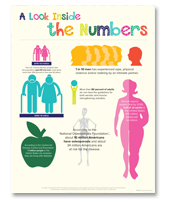Improve Your Life
How Long Will You Live?
How does one manage to live a long and healthy life? Unfortunately, a lot of it boils down to genetics and luck. That said, there are things you can do to stack the odds in your favor. And while nothing can guarantee longevity, doing the right things can vastly improve the quality of your life. Prevention is key.
Are You Looking for Trouble?
Most fatal illnesses show few or no signs early on. So it’s important to look for trouble. If you notice anything new, unusual or painful with your body, go see your doctor as soon as you can. The crucial thing is early detection. That gives you the best chance of beating a disease.
If you get an annual physical (and you should), your doctor will probably administer various health screenings that can identify diseases before you have symptoms. Which tests you need depend upon many factors – your age, gender, family history and personal risk factors. Women should be screened for breast cancer and cervical cancer, while men should be screened for prostate and testicular cancer. Your doctor should also screen for diabetes, high blood pressure and high cholesterol. Many screenings are available right in your doctor's office.
Move … Away From the Table!
You’ve probably heard this before — eat less, move more. It’s just another way of saying diet and exercise. And while it matters what you eat, regular physical activity is perhaps the most important thing you can do for your health. Physical activity burns calories. Burn more than you eat each day and the pounds will come off. Regular exercise can help:
- Control your weight.
- Lower your risk of heart disease.
- Lower your risk for Type 2 diabetes and metabolic syndrome.
- Lower your risk for some cancers.
- Strengthen your bones and muscles.
- Improve your mental health and mood.
- Increase your chances of living longer.
Exercising regularly may be tough at first. But even 10 minutes at a time is fine. The key is to find the right exercise for you. It should be fun and it should match your capabilities. Work up to exercising three to six times a week for 20 to 60 minutes at a time.
Live Long and Prosper
People in the U.S. are living longer than ever before. Many seniors live active and healthy lives. But there's no getting around one thing — as we age, our bodies and minds change. There are things you can do to stay healthy and active as you age:
- Eat a balanced diet.
- Keep your mind and body active.
- Don't smoke.
- Get regular checkups.
- Practice safety habits to avoid accidents and prevent falls.
Mammograms, Pap smears, colorectal cancer screens and other tests can find diseases early when they are easier to treat. Talk to your doctor about which of these tests you should have and when.
- Blood pressure: Have your blood pressure checked at least every two years.
- Cholesterol: Women should have their cholesterol checked regularly starting at age 45; men every five years beginning at 35. If you smoke, have diabetes, or if heart disease runs in your family, begin checking cholesterol at age 20.
- Colorectal cancer: Test for colorectal cancer starting at age 50. Your doctor can help decide which test is right for you.
- Depression: If you've felt “down,” sad or hopeless, and have taken little interest or pleasure in doing things for two weeks straight, ask your doctor about screening for depression.
- Diabetes: Screen for diabetes if you have high blood pressure or high cholesterol.
- Breast cancer: Have a mammogram every one to two years starting at age 40.
- Osteoporosis (women): Have a bone density test at age 65 to screen for osteoporosis (thinning of the bones). If you are between 60 and 64 and weigh 154 pounds or less, talk to your doctor about being tested.
- Cervical cancer (women): Get a Pap smear every one to three years if you have been sexually active or are older than 21.
- Prostate cancer (men): Discuss with your doctor the pros and cons of having a prostate-specific antigen (PSA) test or digital rectal examination (DRE) to screen for prostate cancer.
- Sexually transmitted diseases: Your doctor can help you decide whether to be screened for sexually transmitted diseases, such as HIV, and for women, also chlamydia.

